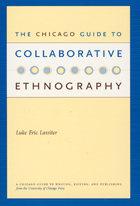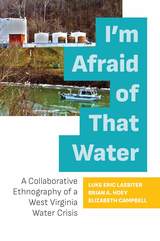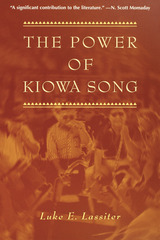3 books by Lassiter, Luke E.

The Chicago Guide to Collaborative Ethnography
Luke Eric Lassiter
University of Chicago Press, 2005
Collaboration between ethnographers and subjects has long been a product of the close, intimate relationships that define ethnographic research. But increasingly, collaboration is no longer viewed as merely a consequence of fieldwork; instead collaboration now preconditions and shapes research design as well as its dissemination. As a result, ethnographic subjects are shifting from being informants to being consultants. The emergence of collaborative ethnography highlights this relationship between consultant and ethnographer, moving it to center stage as a calculated part not only of fieldwork but also of the writing process itself.
The Chicago Guide to Collaborative Ethnography presents a historical, theoretical, and practice-oriented road map for this shift from incidental collaboration to a more conscious and explicit collaborative strategy. Luke Eric Lassiter charts the history of collaborative ethnography from its earliest implementation to its contemporary emergence in fields such as feminism, humanistic anthropology, and critical ethnography. On this historical and theoretical base, Lassiter outlines concrete steps for achieving a more deliberate and overt collaborative practice throughout the processes of fieldwork and writing. As a participatory action situated in the ethical commitments between ethnographers and consultants and focused on the co-construction of texts, collaborative ethnography, argues Lassiter, is among the most powerful ways to press ethnographic fieldwork and writing into the service of an applied and public scholarship.
A comprehensive and highly accessible handbook for ethnographers of all stripes, The Chicago Guide to Collaborative Ethnography will become a fixture in the development of a critical practice of anthropology, invaluable to both undergraduates, graduate students, and faculty alike.
The Chicago Guide to Collaborative Ethnography presents a historical, theoretical, and practice-oriented road map for this shift from incidental collaboration to a more conscious and explicit collaborative strategy. Luke Eric Lassiter charts the history of collaborative ethnography from its earliest implementation to its contemporary emergence in fields such as feminism, humanistic anthropology, and critical ethnography. On this historical and theoretical base, Lassiter outlines concrete steps for achieving a more deliberate and overt collaborative practice throughout the processes of fieldwork and writing. As a participatory action situated in the ethical commitments between ethnographers and consultants and focused on the co-construction of texts, collaborative ethnography, argues Lassiter, is among the most powerful ways to press ethnographic fieldwork and writing into the service of an applied and public scholarship.
A comprehensive and highly accessible handbook for ethnographers of all stripes, The Chicago Guide to Collaborative Ethnography will become a fixture in the development of a critical practice of anthropology, invaluable to both undergraduates, graduate students, and faculty alike.
[more]

I'm Afraid of That Water
A Collaborative Ethnography of a West Virginia Water Crisis
Luke Eric Lassiter
West Virginia University Press, 2020
Weatherford Award Winner, Nonfiction
On January 9, 2014, residents across Charleston, West Virginia, awoke to an unusual licorice smell in the air and a similar taste in the public drinking water. That evening residents were informed the tap water in tens of thousands of homes, hundreds of businesses, and dozens of schools and hospitals—the water made available to as many as 300,000 citizens in a nine-county region—had been contaminated with a chemical used for cleaning crushed coal.
This book tells a particular set of stories about that chemical spill and its aftermath, an unfolding water crisis that would lead to months, even years, of fear and distrust. It is both oral history and collaborative ethnography, jointly conceptualized, researched, and written by people—more than fifty in all—across various positions in academia and local communities. I’m Afraid of That Water foregrounds the ongoing concerns of West Virginians (and people in comparable situations in places like Flint, Michigan) confronted by the problem of contamination, where thresholds for official safety may be crossed, but a genuine return to normality is elusive.
On January 9, 2014, residents across Charleston, West Virginia, awoke to an unusual licorice smell in the air and a similar taste in the public drinking water. That evening residents were informed the tap water in tens of thousands of homes, hundreds of businesses, and dozens of schools and hospitals—the water made available to as many as 300,000 citizens in a nine-county region—had been contaminated with a chemical used for cleaning crushed coal.
This book tells a particular set of stories about that chemical spill and its aftermath, an unfolding water crisis that would lead to months, even years, of fear and distrust. It is both oral history and collaborative ethnography, jointly conceptualized, researched, and written by people—more than fifty in all—across various positions in academia and local communities. I’m Afraid of That Water foregrounds the ongoing concerns of West Virginians (and people in comparable situations in places like Flint, Michigan) confronted by the problem of contamination, where thresholds for official safety may be crossed, but a genuine return to normality is elusive.
[more]

The Power of Kiowa Song
A Collaborative Ethnography
Luke E. Lassiter
University of Arizona Press, 1998
Many Kiowas believe that song is a gift from God. Its power, argues Luke E. Lassiter, rests in the many ways that community members hear, understand, and feel it: "Song has power. As I begin to understand what this means for my mentors, I am just beginning to understand what this means in my life. They are not just singers. They are vehicles for something greater than all of us. Indeed, I now understand that I am not just a singer. But . . . I will sing until I die." As a boy, Lassiter had an early fascination with pow wows. This interest eventually went from a hobby to a passion. As Lassiter made Kiowa friends who taught him to sing and traveled the pow wow circuit, serving many times as a head singer, he began to investigate and write about the pow wow as an experiential encounter with song. The Power of Kiowa Song shows how song is interpreted, created, and used by individuals, how it is negotiated through the context of an event, and how it emerges as a powerfully unique and specific public expression. The Power of Kiowa Song presents a collaborative, community-wide dialogue about the experience of song. Using conversations with Kiowa friends as a frame, Lassiter seeks to describe the entire experience of song rather than to analyze it solely from a distance. Lassiter's Kiowa consultants were extremely active in the writing of the book, re-explaining concepts that seemed difficult to grasp and discussing the organization and content of the work. In a text that is engaging and easily read, Lassiter has combined experiential narrative with ethnological theory to create a new form of collaborative ethnography that makes anthropology accessible to everyone. This book is designed for anyone interested in Native American studies or anthropology, and it also serves as a resource written by and for the Kiowa themselves.
Hear the Power of Kiowa Song
Hear the Power of Kiowa Song
[more]
READERS
Browse our collection.
PUBLISHERS
See BiblioVault's publisher services.
STUDENT SERVICES
Files for college accessibility offices.
UChicago Accessibility Resources
home | accessibility | search | about | contact us
BiblioVault ® 2001 - 2024
The University of Chicago Press









